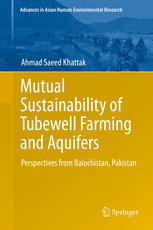

Most ebook files are in PDF format, so you can easily read them using various software such as Foxit Reader or directly on the Google Chrome browser.
Some ebook files are released by publishers in other formats such as .awz, .mobi, .epub, .fb2, etc. You may need to install specific software to read these formats on mobile/PC, such as Calibre.
Please read the tutorial at this link: https://ebookbell.com/faq
We offer FREE conversion to the popular formats you request; however, this may take some time. Therefore, right after payment, please email us, and we will try to provide the service as quickly as possible.
For some exceptional file formats or broken links (if any), please refrain from opening any disputes. Instead, email us first, and we will try to assist within a maximum of 6 hours.
EbookBell Team

4.3
18 reviewsThis book develops and presents a conceptual model for sustainable-groundwater irrigated agriculture. The model is based on the general principles of the economic theories of cost-benefit relations and behavioral models of resource use. The study has evaluated the advances in tubewell farming and the aquifer potential in arid Balochistan over a period of three decades. It has analyzed the booms and busts of the farming over time taking into consideration the local aquifer limitations and the socio-political considerations and policy framework. Three data sets – farmers, expert officials and satellite images - have been used to aid validation. By observing the most vital parameters, the study has concluded that the local aquifer has been falling at a rate directly proportional to the growth rate of irrigated farming, suggesting the current development process is unsustainable. For instance, the research finds that tubewell bores have reached down to depths where the term “aquifer mining” applies; as a result, irrigation costs have become too high to allow farming to be economically viable. In addition, desertification is steadily encroaching and the cropping pattern being changed from high-value horticulture to subsistence cropping. The study has also set parameters for assessing the willingness of farmers to accept modern, sustainable strategies and interventions.